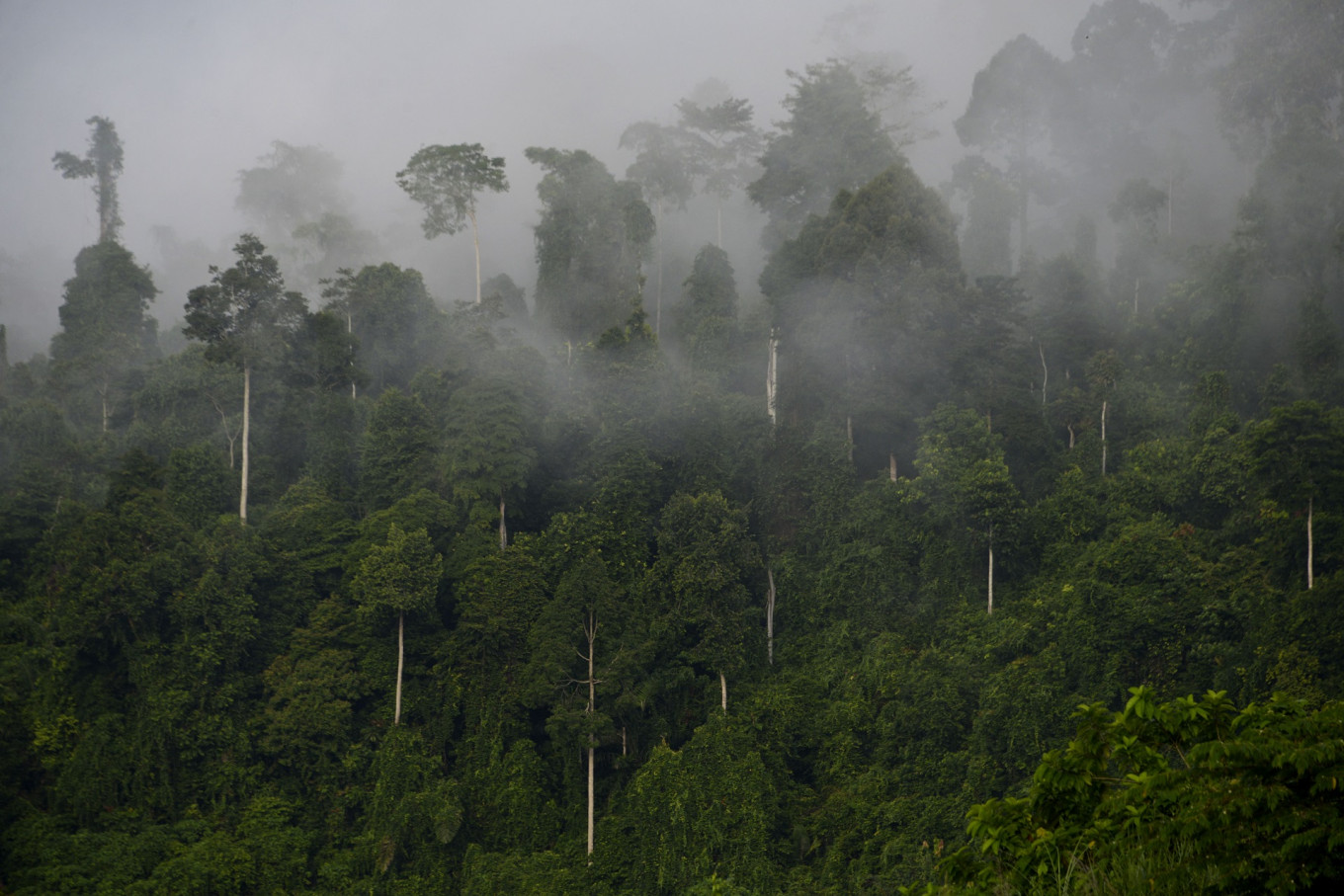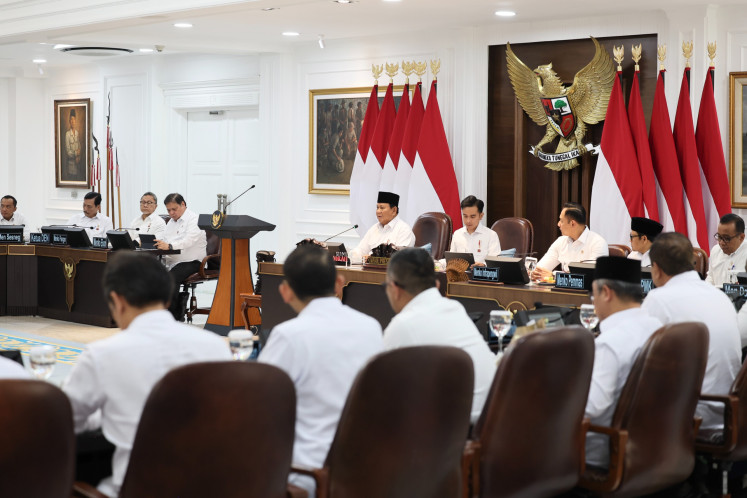Popular Reads
Top Results
Can't find what you're looking for?
View all search resultsPopular Reads
Top Results
Can't find what you're looking for?
View all search resultsFailure of RI-Norway REDD a major lesson for Brussels, wealthy nations
Indonesia's deciding to walk away from its REDD deal with Norway, especially ahead of COP26, is a wake-up call to rich countries to keep their end of the bargain.
Change text size
Gift Premium Articles
to Anyone
N
orway’s stonewalling on deforestation incentive payments to Indonesia undermines future rich-poor cooperation on climate change.
Last month, Indonesia’s Foreign Ministry announced that it was cancelling a decade-long agreement with Norway known as REDD [reducing emissions from deforestation and forest degradation], under which Indonesia would receive payments for reducing deforestation rates.
According to Jakarta, Norway had delayed payments that were agreed by both parties after Indonesia posted its lowest deforestation rates on record.
Norway’s obstinacy and Indonesia’s response have profound implications for the European Union’s bold green ambitions, in particular its efforts to build on the global Paris climate accords. The chances of a deal at the forthcoming United Nations climate change conference (COP26) in Glasgow are now receding at pace.
If the European Commission is to play its part – and it has a central role to play, given the EU’s climate leadership – then learning the lessons of the REDD failure is essential.
When Indonesia and Norway signed their agreement in 2010, the forces shaping global climate policy were very different. Although a global problem, reducing emissions was a higher priority for wealthy countries; poor countries were simply more concerned with alleviating poverty and raising living standards.
It was well understood that a “low carbon transition” for poor, even middle-income, countries could not happen without the rich world effectively compensating poor countries. This included the idea of technology transfer: assisting poorer countries gain access to high-cost, low-emissions technologies.
For forested countries with high deforestation rates like Indonesia and Brazil, REDD was the clear path.
But there was a significant opportunity cost. Locking up forests meant losing land for agriculture, both small- and large-scale. This was particularly acute for Indonesia and its palm oil sector. Analyses indicated that the financial returns of palm oil plantations were around 10 times more than anything that could be offered by a carbon price.
Regardless, Norway promised cash payments to both Indonesia and Brazil for improving their performance in deforestation.
Indonesia was prepared to take leadership on the issue. It signed the agreement with Norway to considerable fanfare in 2010. A considerable – and technically formidable – team was assigned to prepare Indonesia for a REDD pathway.
The first and most critical step was the introduction of the forest moratorium in 2011, which ring-fenced primary forests, peatlands and other areas from development. The moratorium has since been extended and made permanent.
This was the first major step taken by Indonesia in terms of attempting to reduce its forest-based emissions.
Following that moratorium came another, separate one, which put a halt to palm oil development. A mandatory, national sustainability standard certification was developed for palm oil. Indonesia also fundamentally reformed many parts of its bureaucracy, including jurisdictional relations, spatial planning, business licensing and other processes. The result was the lowest level of deforestation in the country since records began.
In other words, REDD was working – except that Norway refused to keep its side of the bargain. The tranche – a relatively small payment of US$56 million – has been held up with Norway now changing the goalposts and making fresh demands. One Indonesian minister summed up the frustration: “We were wasting our time.”
It is apparent that wealthy countries have fallen short over the past decade of the climate finance they promised.
This is all the more problematic because many in the developing world see policies that seek to support environmental outcomes – particularly those coming from Brussels – but only when they support developed world interests (such as EU farmers looking to protect against foreign imports).
Take the EU’s Renewable Energy Directive that sought to promote the production and use of renewable fuels. When it became apparent that biofuels from Indonesia would eventually win the majority share of the EU’s renewable energy markets, Brussels imposed both tariffs and bans on those markets.
Similarly, the EU’s proposed Carbon Border Adjustment Mechanism (CBAM) will impose a tariff on imported steel and other products, including from developing nations.
Indonesia and other countries in the region have expressed considerable alarm at these policies.
The decision to walk away from the REDD deal with Norway shows that Indonesia will no longer go along with climate policies it feels are imbalanced. Many other middle-income and developing nations will follow Indonesia's lead. The question is whether the West, and especially Brussels, will learn the lesson and recommit to supporting the Global South. If not, a new global climate deal looks farther away than ever.
***
The writer is an agronomist and environmental expert, cofounder of Palm Oil Monitor and lead auditor for the Roundtable on Sustainable Palm Oil (RSPO).










